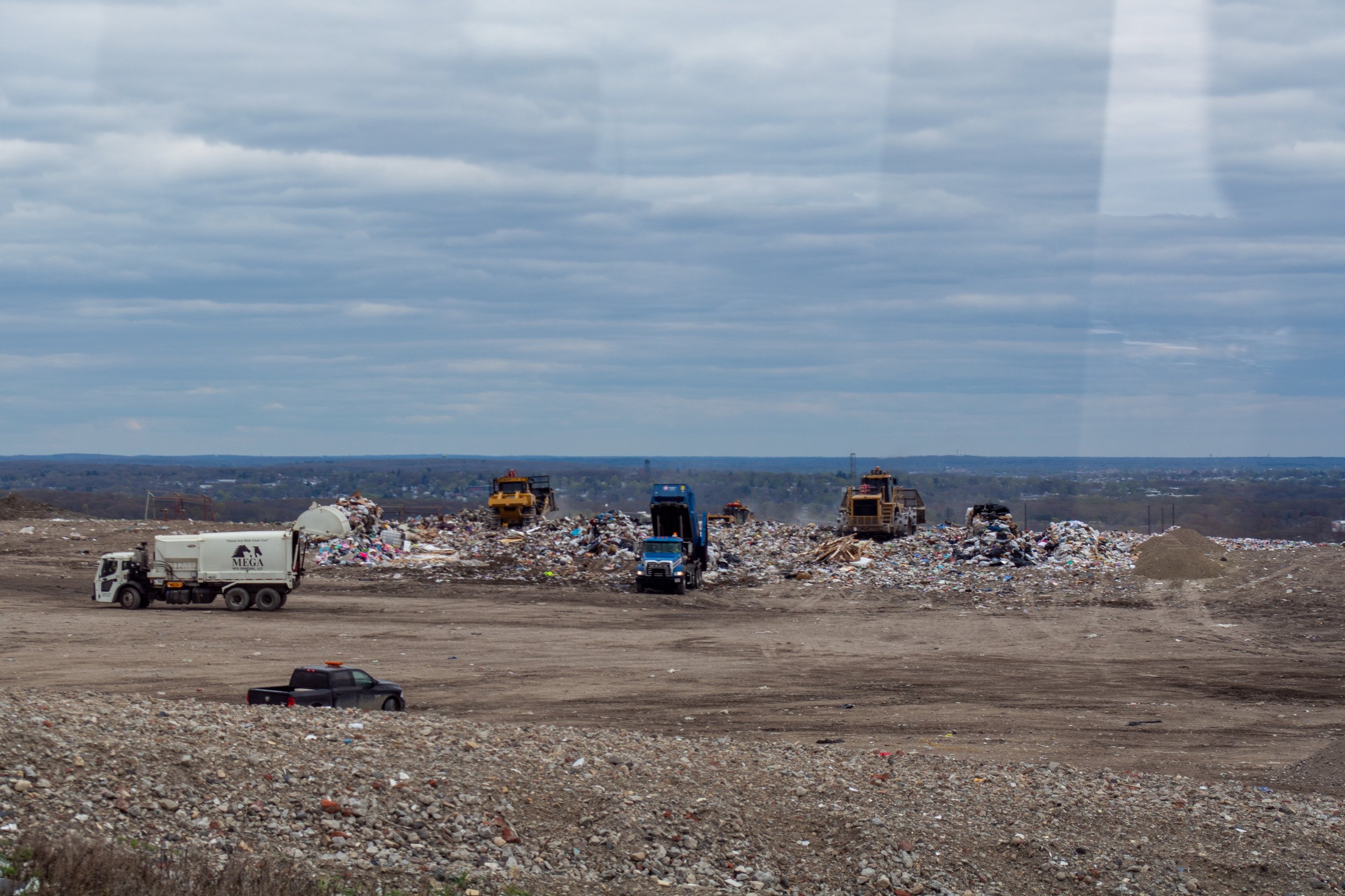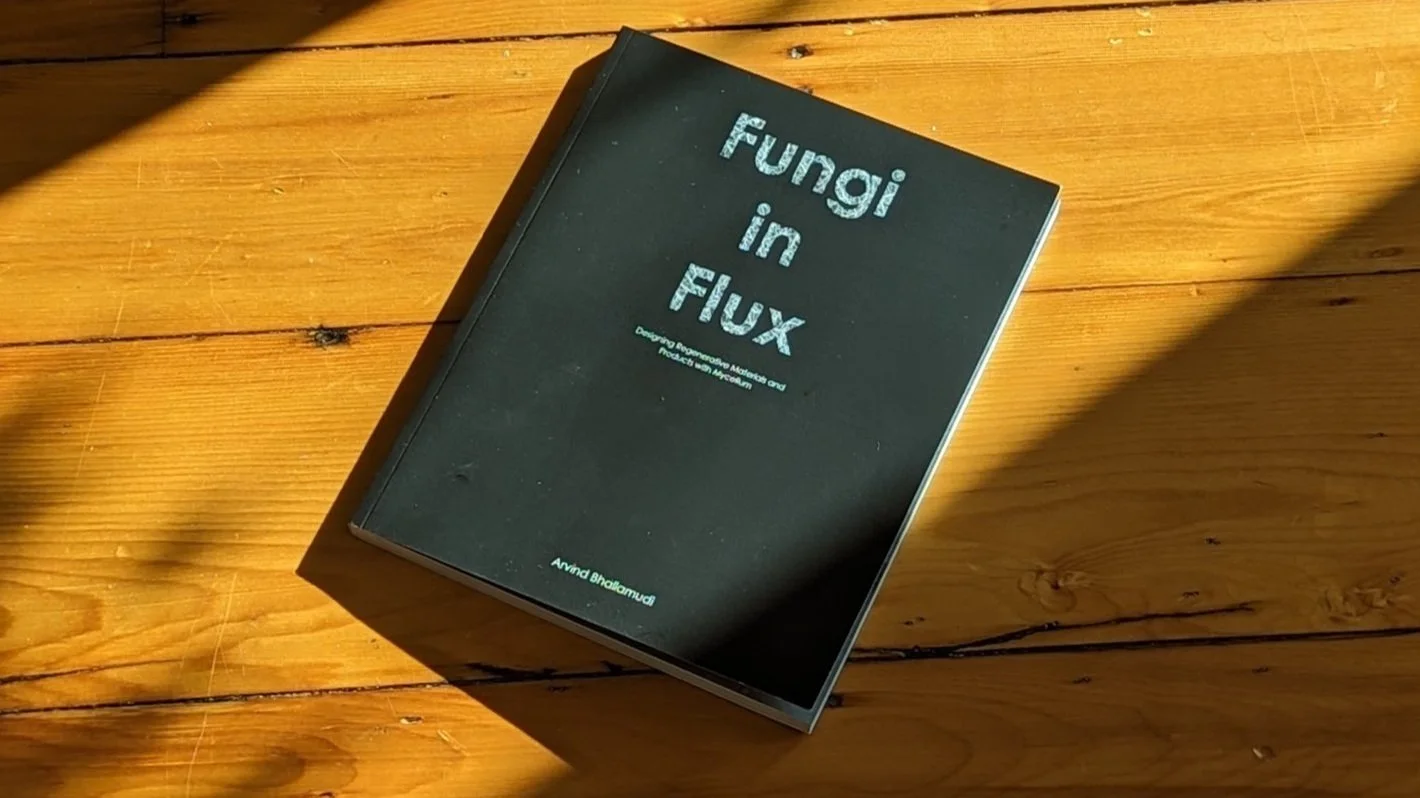Experimental Approaches to Biomaterial Design and Prototyping
Exploring how fungi function—and how we can work with them to fabricate alternate materials and products toward waste management and carbon capture.
Learning Resources
Biodesign Research
Sharing our experience and insights on mycelium prototyping for responsible use of materials through educational workshops and online resources.
Our team, Vaishnavi Mehta, Calgary-Haines Truatman and Arvind Bhallamudi, founded Myco-Type in 2022, with support from the RISD Somerson Sustainability Innovation Fund.
Growing from Rhode Island
We are building a waste-to-material ecosystem that is localized, accessible, and versatile to diverse maker needs.
-
We’ve grown a series of mycelium compositions as blocks, sheets, and pastes with varying physical properties and experiential qualities. We aim to maximize carbon capture and minimize emissions in a streamlined process by considering fungal and material lifecycles, sourcing, transportation, growth, and disposal.
-
Using both traditional techniques and rapid prototyping technologies such as 3D printing, our unique approach to pre-fabricating mycelium materials creates opportunities for more rapid and effective creations.
-
Learn about mycelium science and how to set up a safe and effective design experiment. We work to provide prefabricated mycelium materials for students and their experiments, as well as educational resources for instructors and experiential teaching.

Our Purpose
Take a moment to imagine a world of intentionally integrated human and natural systems. One that restores more than it pollutes, grows more than it degrades, and which is resilient in uncertain futures.
Our Partner
Nature’s Preferred Symbiont
We’re utilizing the power of fungi to transform waste into locally-sourced, nontoxic, and biodegradable prototyping materials. Fungi are abundant natural recyclers that have evolved over millennia to be efficient and regenerative at decomposing waste and converting it into useful elements.
-
Mycelium is a mushroom’s foundational structure, analogous to roots of a tree—a thread-like complex made of microscopic ‘hyphae’. It’s an intelligent life-support system that can replenish, connect and communicate with its ecosystem.
-
In nature, fungi are nutrient cyclers and mutualists that live in a beneficial association with plants and other organisms. Fungi are experts at decomposing organic waste through mycelium—and some species are even known to break down radioactive waste and plastics.
-
Mycelium with an organic feed can be placed in a structure to grow. Under conducive conditions, the mycelium spreads and binds the feed into a solid material that can be dehydrated and extracted for use.
‘Fungi in Flux’
This book is a thesis and compilation of literature, experiments, and design systems for growing carbon-negative, circular materials and objects using local waste and mycelium.
Past Workshops and Talks
Talks
Mycotype Online, 2025
EcoLaunch Accelerator, 2025
Autodesk Research Connections, Boston, 2023
Brown RISD Innovation Community (BRIC), Providence, 2022
Workshops
NMIMS School of Design, India, 2024
RISD Graduate Exchange, Providence, 2023
RISD Cross-Departmental Workshop, Center for Integrative Technologies, Providence, 2023
RISD ID Department Winter-session Course ‘Mold(ing)’
Press
Designboom, 'Myco-type creates mycelium blocks and sheets with sawdust, coffee grounds and local waste’, 2025
Autodesk, ‘Designing Regenerative Materials for Prototyping with Local Waste’, 2024
RISD News, ‘RISD’s Inaugural Somerson Sustainability Innovation Grants Support Groundbreaking Research’, 2023






